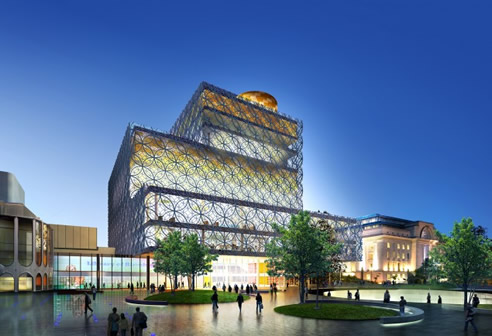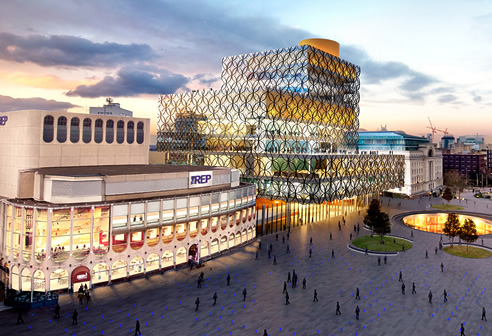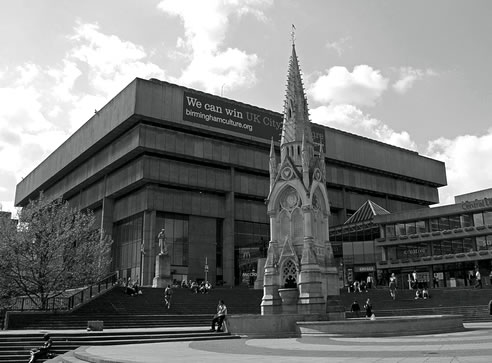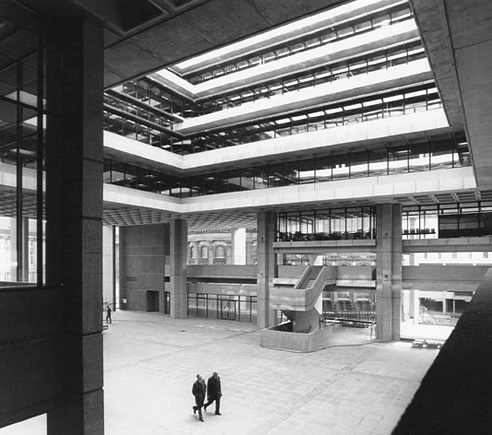Having looked fondly on previous visits to Birmingham Central Library, it was with much excitement that I returned again on Saturday, hoping to find some reference material for a forthcoming post.
As I walked from the NIA (past the ‘Olympian Entrance’, a remnant of the city’s failed bid for 1992 Olympic Games), along the canal and over the bridge to the ICC, I was struck by the unimaginative architecture of Brindley Place, much it a product of the previous decade. Indeed, I’ve often questioned why Britain’s second city lacks any identifiable skyline to speak off—the British Telecom Tower and Rotunda the only distinguishable buildings amongst a slew of high-rise offices and residential tower blocks awaiting eventual demolition.
On reaching Centenary Square, my path was obstructed by a large construction area, where Birmingham’s next great architectural hope, the Library of Birmingham is being built. Designed by Dutch architects Mecanoo Architecten, and scheduled for completion in 2013, this building is far from unremarkable.

Artists impression of the new Library of Birmingham.
A transparent glass building, wrapped in a delicate metal filigree, it will occupy a space between the Birmingham Repertory Theatre (The REP), a concrete clad building designed in 1964, and Baskerville House, a limestone building designed in 1936. These buildings will then inform the space immediately in front of them, dividing Centenary Square into three public spaces; one for monuments (its centrepiece being the Hall of Memory), one for culture (with a large sunken patio area) and one for outside entertainment.

Artists impression of the new Library of Birmingham in relation to Centenary Square.
Birmingham Central Library
Whilst I admire the bravery and ambition of this project, I’m sure the same level of excitement and aspiration surrounded the design of the current library, opened in 1974. Unlike its replacement, this Brutalist style building was designed by a local architect, John Madin and with the Rotunda and Alpha Tower, remains one of Birmingham’s key Modernist buildings.

Birmingham Central Library, as it looks today. Original photo by Tony Hiskett.
I have to confess that I have a soft spot for this building, though it’s often derided by the citizens of Birmingham.
Were it not for its unfortunate position, where it obstructs the flow of pedestrian traffic from Centenary Square to Chamberlain Square, I’d love to see it refurbished and given a new role in the city. How wonderful to see it set amongst the water gardens seen in the original plans, which were designed to soften the edges of this imposing mass of concrete. Perhaps too, the atrium could be returned to its original design, removed of the bars and fast food restaurants that currently suffocate this space. Instead, it faces demolition once the new library opens.

Inside Birmingham Central Library, as it was in 1974.
Will we talking about demolishing the new library in 40 years time, bemoaning it’s messy, ill-defined exterior? Following a string of other big building projects in the city, none of which seem to give the city any architectural identity, it seems likely.